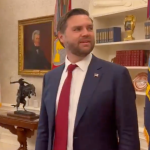To support emergency health needs in Ukraine, World Health Organization (WHO) today gave 20 all-terrain ambulances able to function in even the most damaged and inaccessible areas to the Ministry of Health of Ukraine.
“We bring not just supplies but support based on your needs. Today we are handing to you 20 ambulances, along with generators and blood refrigerators to hospitals wherever they are needed.” said Dr Tedros Adhanom Ghebreyesus, the WHO Director-General handing over the keys to the Deputy Minister of Health Iryna Mykychak in Lviv, Ukraine. “But the most important thing we want to see delivered is peace.”
“Today, as we consolidate our efforts with WHO, we need to strengthen our national health care system. And these are very effective ways to support our doctors, who heroically provide medical care in Ukraine in difficult times. Today we received modern off-road vehicles from the WHO to ensure medical evacuation. These ambulances can drive to the most important places available, even where the roads have been most damaged” said Deputy Minister Mykychak as she looked over the new addition to the emergency relief team’s fleet. “We are infinitely grateful to all our international partners for such important and significant support of Ukraine. We worked closely with the WHO team in Ukraine for a long time, long before the war in health care reform in Ukraine. I am confident that together we will provide necessary support people of Ukraine and address health needs. We need peace.”
Dr Tedros has been in Ukraine for 3 days of meetings with senior government leaders and to assess the current health needs in Ukraine. During this time he visited health facilities damaged during the war and spoke with health care workers who worked tirelessly, providing care by torchlight and eventually evacuating all patients when it became too dangerous to continue.
Two months into the war, the medical infrastructure in Ukraine has been significantly damaged due to the continuous attacks on health care, and access to health care in many areas has been severely impacted. This donation of 20 ambulances will help bring vital lifesaving care to people in Ukraine and improve the national emergency medical teams’ timeliness and quality of health services.
“WHO is committed to supporting people in Ukraine in accessing much-needed health services. The donation of 20 ambulances will bring lifesaving care as Ukraine’s health services have been significantly stretched and access to health care remains a challenge for many people,” said Dr Jarno Habicht, WHO Representative and Head of the WHO Country Office in Ukraine. “One of the health workers we spoke to remembered how during the days of constant shelling in their city, ambulances continued to operate even during curfew to ensure people received the care they needed. We are inspired by the bravery of Ukrainian health workers and hope this donation will contribute to their work.”
WHO has so far delivered 393 metric tonnes of emergency and medical supplies and equipment to Ukraine. Of that amount, 167 metric tonnes have reached their intended destinations, mostly in the east, south and north of the country where the need is greatest.
Notes to editors:
● Barely a week after the war started in Ukraine, WHO launched an appeal for three months (March – May 2022) for US$ 57.5 million to address the needs of 6 million people: US$45 million for health response in Ukraine and another US$12.5 million for the health needs of Ukrainian people affected by the conflict in neighbouring countries. This is WHO’s first appeal to respond to the ongoing war in Ukraine, and it has been fully funded.
● WHO is the United Nations agency that connects nations, partners and people to promote health, keep the world safe and serve the vulnerable – so everyone, everywhere can attain the highest level of health. WHO leads global efforts to expand universal health coverage. We direct and coordinate the world’s response to health emergencies. We promote healthier lives – from pregnancy care through old age. WHO works across 194 countries in 6 regions of the world, including the European Region which encompasses 53 countries across Europe and Central Asia. WHO staff include the world’s leading public health experts, bringing together doctors, epidemiologists, scientists and managers – all champions for healthier, safer lives everywhere.
Powered by WPeMatico






